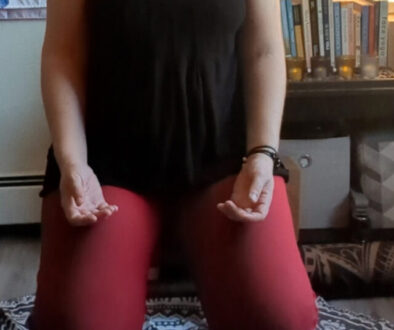My Intro to Meditation and Neuroscience
What are you doing to support a healthy mental state in yourself? What about for those around you?
For all of the mental health awareness that we have, sometimes people stop at the awareness stage without putting into action ways to improve their mental health long term. But the brain is more adaptable than some might think, for better or for worse, and the truth is that our mental state is something that we have conditioned in our heads. Improved mental health comes from changing, not just being aware that there is a problem.
Getting into something as diverse and expansive as yoga is a process, and meditation was the last piece that I added to my yoga practice. I could never seem to shut off this constant dialogue running in my brain, could never get comfortable enough to find stillness in my body, and could never find myself in that particular moment. Besides, who has time to meditate? In the same way that I learned to work with my breath in my poses, I learned to focus and even clear my mind in my asana practice, and eventually moved into long, in-depth meditations.
The brain responds to stimuli much like the body; brain tissue develops with increased stimuli, or it will atrophy without it. Neural pathways are created and strengthened with repeat stimulation, as well as your repeated response to it. That second part is really what we are talking about when we talk about mental health, isn’t it? It would be lovely if we could all surround ourselves with things that make us feel good, but mental health is not a reflection of what is going on around you, it is your individual response to it. It is the difference between being stuck in a self-destructive pattern and being able to free yourself from it.
This ability of the brain (and nervous system) to adapt and reconfigure is known as neuroplasticity. It is in this way that yoga helps one overcome samskaras, or impressions left on you by past thoughts and actions. At a synaptic level, each time that you become aware of an unhealthy response or pattern and consciously choose to make a change in that moment, you affect the neural pathways and samskaras that have built up over time. Changing your behavior and response builds new connections, strengthened and reinforced every time you commit to this change moving forward.
There is so much that I can say on science and meditation, and it all starts here, with the understanding that you can make lasting changes to your brain and your mental state. I have studied neuroscience longer than I have practiced meditation, so this section of my blog will be more science-based with fewer actual practice videos. Meditation is much more than a placebo effect and I hope that through understanding the science, you can come to a better understanding of yourself through these practices.
Disclaimer: I am not a mental health professional. Meditation is incredibly beneficial and I encourage everyone to work it into their daily self-care in some form or another. However, I also encourage everyone to seek help from a mental health professional for ongoing mental health problems. Meditation is not a substitution for medication or other therapeutic methods of treatment when necessary, but a tool to be used in conjunction with these as prescribed.


